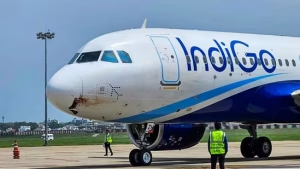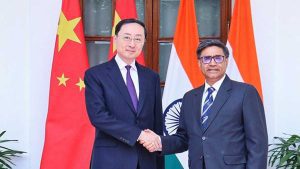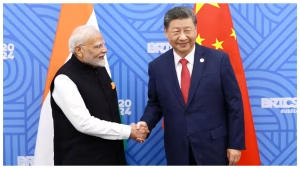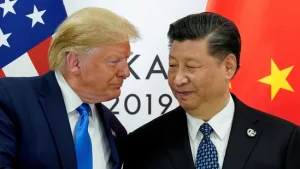New Delhi – India China Flights are set to resume as early as September, marking a significant milestone in diplomatic relations between the two Asian giants. The resumption of India China Flights represents a major breakthrough after years of suspension due to the Covid-19 pandemic and subsequent border tensions that strained bilateral relationships.
The announcement regarding India China Flights is expected to coincide with Prime Minister Narendra Modi’s visit to China at the end of August for the Shanghai Cooperation Organisation summit. This timing demonstrates the strategic importance of aviation connectivity in rebuilding diplomatic trust between the neighboring nations.
Government Directives and Airline Preparations

The Indian government has reportedly instructed domestic airlines to prepare for India China Flights at short notice, with official announcements expected during the SCO summit later this month. This directive indicates the government’s commitment to rapidly restoring aviation links as part of broader diplomatic normalization efforts.
IndiGo, India’s largest carrier, has already been asked to begin preparations for India China Flights, according to informed sources. This early engagement with airlines demonstrates the seriousness of government intentions to restore comprehensive aviation connectivity between the two countries.
Historical Context and Pre-Pandemic Operations
Before the suspension, India China Flights operated extensively, with Indian airlines including Air India and IndiGo maintaining regular services to key Chinese cities. Over a dozen direct flights operated weekly, connecting major destinations like Beijing, Shanghai, Guangzhou, and Kunming with New Delhi, Mumbai, and Kolkata.
Chinese carriers including Air China, China Southern, and China Eastern also operated India China Flights, creating a robust aviation network that facilitated business, tourism, and cultural exchanges. The comprehensive nature of these pre-pandemic services demonstrates the potential for restored connectivity.
Covid-19 Impact and Diplomatic Complications
India China Flights were initially halted due to the Covid-19 pandemic outbreak, forcing travelers to use connecting flights through hubs like Hong Kong or Singapore. This disruption significantly complicated travel between the two countries and reduced people-to-people exchanges that had been growing steadily.
The situation deteriorated further following the June 2020 border clashes in eastern Ladakh’s Galwan Valley, which resulted in casualties on both sides. These military confrontations created additional barriers to resuming India China Flights beyond pandemic-related restrictions.
Diplomatic Measures and Bilateral Tensions


Following the border clashes, India implemented various measures against China, including banning Chinese mobile applications, which China characterized as discriminatory. These actions created a complex diplomatic environment that further delayed the restoration of India China Flights and other bilateral cooperation mechanisms.
The Chinese government considered raising the mobile application ban issue at the World Trade Organization, highlighting how trade and diplomatic tensions extended beyond military confrontations to affect multiple aspects of bilateral relations, including aviation connectivity.
Tourist Visa Resumption and Normalization Steps
India’s recent announcement regarding the resumption of tourist visas for Chinese nationals represents a crucial step toward normalizing relations and facilitating the restoration of India China Flights. This visa policy change demonstrates government commitment to rebuilding people-to-people connections between the two nations.
Also Read: Trump China Tariffs: US President Extends Trade Deadline For Another 90 Days
The visa resumption complements aviation restoration efforts, creating the necessary framework for Chinese tourists to visit India once India China Flights become operational again. This coordinated approach suggests comprehensive planning for bilateral relationship improvement.
January Agreement and Diplomatic Progress
India and China first agreed in principle to resume India China Flights during January meetings between Foreign Secretary Vikram Misri and Chinese Foreign Minister Wang Yi. This agreement represented the foundation for current restoration efforts and demonstrated sustained diplomatic engagement despite previous tensions.
The January discussions also included agreements to promote people-to-people contact, particularly between media and think tanks, alongside decisions to resume the Kailash Mansarovar Yatra. These comprehensive agreements created the framework for restoring India China Flights as part of broader normalization efforts.
Prime Minister Modi’s China Visit

PM Modi’s expected visit to China for the SCO Summit scheduled for August 31 and September 1 in Tianjin represents his first trip to the neighboring country in seven years. This historic visit provides the ideal diplomatic context for announcing India China Flights resumption and demonstrates high-level commitment to relationship improvement.
Chinese foreign ministry spokesperson Guo Jiakun welcomed PM Modi’s expected attendance, expressing confidence that the summit would achieve solidarity, friendship, and fruitful results. The visit also creates possibilities for bilateral meetings with Chinese President Xi Jinping, potentially further advancing India China Flights restoration.
US Tariff Context and Strategic Implications


The push to resume India China Flights occurs amid heightened tensions with the United States over trade tariffs imposed by President Donald Trump. Trump doubled tariffs on India from 25% to 50% due to New Delhi’s oil purchases from Russia, creating common ground between India and China regarding US trade policies.
Chinese Ambassador Xu Feihong publicly called Trump a “bully” and warned India against yielding to US trade pressure, stating “give the bully an inch, he will take a mile.” This Chinese support for India creates favorable conditions for resuming India China Flights and strengthening bilateral cooperation.
Future Prospects and Regional Implications
The restoration of India China Flights represents more than aviation connectivity; it symbolizes broader diplomatic reset between Asia’s two largest economies. Successful implementation could lead to expanded economic cooperation, increased tourism, and strengthened cultural exchanges that benefit both nations’ development goals.
The timing of India China Flights resumption amid US trade tensions also highlights the strategic importance of Asian economic integration and cooperation in facing external challenges.

